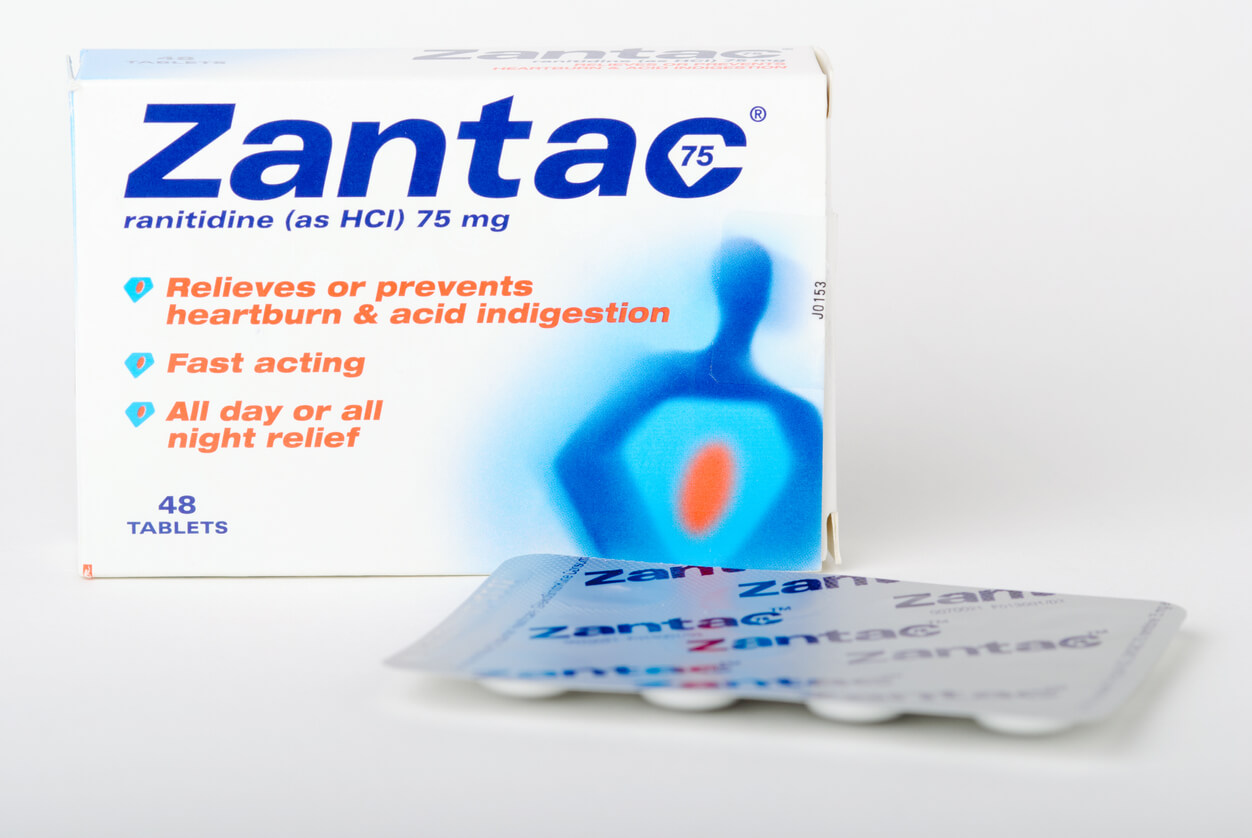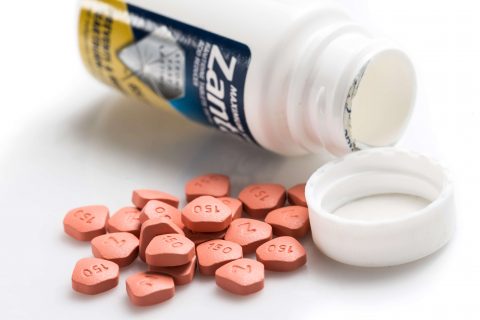What Zantac Recall Could Cost Drugmakers, Consumers
Editors carefully fact-check all Drugwatch.com content for accuracy and quality.
Drugwatch.com has a stringent fact-checking process. It starts with our strict sourcing guidelines.
We only gather information from credible sources. This includes peer-reviewed medical journals, reputable media outlets, government reports, court records and interviews with qualified experts.

Some drugmakers that issued voluntary recalls for Zantac and its generic form, ranitidine, for potential contamination with the carcinogen NDMA may rack up millions in costs. The exact cost to consumers isn’t as easy to estimate, though experts say it’s low.
Generic drugmaker Dr. Reddy’s Laboratories issued a voluntary recall at the end of October 2019. Dr. Reddy’s is one of the only drugmakers that has publicly reported costs related to its recall.
The company reported that it earned $202 million from generics in North America in the second quarter, down by about $32 million from the previous quarter. That translates to a 14 percent loss, according to a transcript of the drugmaker’s Q2 2020 Earnings Conference Call on Nov. 1, 2019, provided by Seeking Alpha.
Dr. Reddy’s CEO Erez Israeli attributed the majority of the loss to the Zantac recall in the United States.
“The sequential decline was primarily driven by certain issues impacting the quarter such as … provisions related to nationwide recall of ranitidine product due to NDMA impurities limits following FDA’s caution note regarding the same,” Israeli said on the conference call.
The company has suspended sales of all OTC and prescription ranitidine products. It expects to recover from the loss in the third quarter.
Financial Cost to Consumers Is Low
While drugmakers’ cost may be in the millions, patients may only lose the cost of the medication.
Dr. Karla R. Dick, a family practitioner in Mansfield, Texas, has had patients ask her about the financial cost of the Zantac recall.
“The financial cost of this drug, Zantac/ranitidine, when the drug is recalled is low, since it is generally inexpensive,” Dick told Drugwatch in an email. “The [Valsartan] blood pressure medication recalls this past summer also had low costs to patients, as these all have generic versions and are very inexpensive. The patients can incur more cost when we change their medication, as they have to return to the office within a month to be seen again to see if the medication change is effective.”
Dick discusses the risks of any recalled medication with her patients. If there is a suitable, affordable alternative, she recommends discontinuing the recalled medication.
Apotex Corp., one of the first companies to voluntarily recall its ranitidine products in September, also says the cost to consumers is minimal. It supplied ranitidine products to retailers such as Walmart, CVS, Rite Aid and Walgreens and will be reimbursing its customers.
“The financial cost of this drug, Zantac/ranitidine, when the drug is recalled is low, since it is generally inexpensive.”
The company hasn’t received any reports of adverse events and issued the precautionary recall after the FDA announced the possibility of low levels of NDMA in ranitidine.
“Our ranitidine recall was initiated on a precautionary basis to the retail level only and not to the consumer level,” Jordan Berman, vice president of Global Corporate Communications for Apotex, told Drugwatch in an email. “This means that any ranitidine in the possession of consumers was not recalled.”
The FDA has not yet advised patients to stop taking their ranitidine medication without the advice of their health care provider, but if necessary, they can return recalled medication to the retailer where they purchased it for a refund, Berman added.
While consumers have been advised to seek refunds from pharmacies and other retailers, not all retail stores may provide refunds.
“Walgreens doesn’t provide refunds for the recalled Zantac,” Maureen Young, a Walgreens pharmacy technician in Florida, told Drugwatch.
Young directs her Walgreens customers to Inmar, a recall management company. She advised that consumers might be able to contact the company for refunds by calling 1-800-967-5952.
Drugwatch reached out to Walmart and CVS about the recall but received no reply.
Sanofi, Pfizer Brace for Zantac Lawsuits
The financial cost of reimbursing retailers might not be the only costs facing some Zantac drugmakers. The recall has sparked more than two dozen Zantac lawsuits filed by people who say NDMA contamination in the drug led to bladder, stomach and other cancers.
In anticipation of a large number of lawsuits, plaintiff’s lawyers filed a motion to transfer all Zantac cases to multidistrict litigation in New Jersey federal court on Nov. 4, 2019.
Lawyers say this litigation “will almost certainly dwarf the Valsartan litigation.” Unlike the NDMA in Valsartan, the NDMA in Zantac is “inherent to the drug’s molecular structure,” according to the brief in support of the motion.
“Over the more than 30 years that Zantac has been sold in the United States, every one of the millions of the drug’s consumers has been exposed to dangerous levels of NDMA.”
The lawsuits say drugmakers Sanofi, Pfizer Inc. and Boehringer Ingelheim knew that ranitidine metabolized into unsafe levels of NDMA but didn’t warn the public.
“Thus, over the more than 30 years that Zantac has been sold in the United States, every one of the millions of the drug’s consumers has been exposed to dangerous levels of NDMA and many thousands of those consumers have contracted cancer as a result,” plaintiff’s lawyers said in the brief in support of the motion.
In response, Sanofi, Pfizer and Boehringer Ingelheim have hired top defense lawyers in anticipation of litigation, according to Law.com.
“Pfizer is named in only certain actions identified in the plaintiffs’ petition, and believes those complaints are without merit. The company is reviewing the plaintiffs’ petition for creation of an MDL and will respond in due course,” Pfizer spokeswoman Sally Beatty told Law.com.
On Nov. 27, 2019, attorneys for defendants Pfizer, Sanofi, Boehringer Ingelheim and GlaxoSmithKline filed a response to the MDL petition. They agreed that the cases should be consolidated in New Jersey before Judge Freda L. Wolfson under MDL No. 2924.
